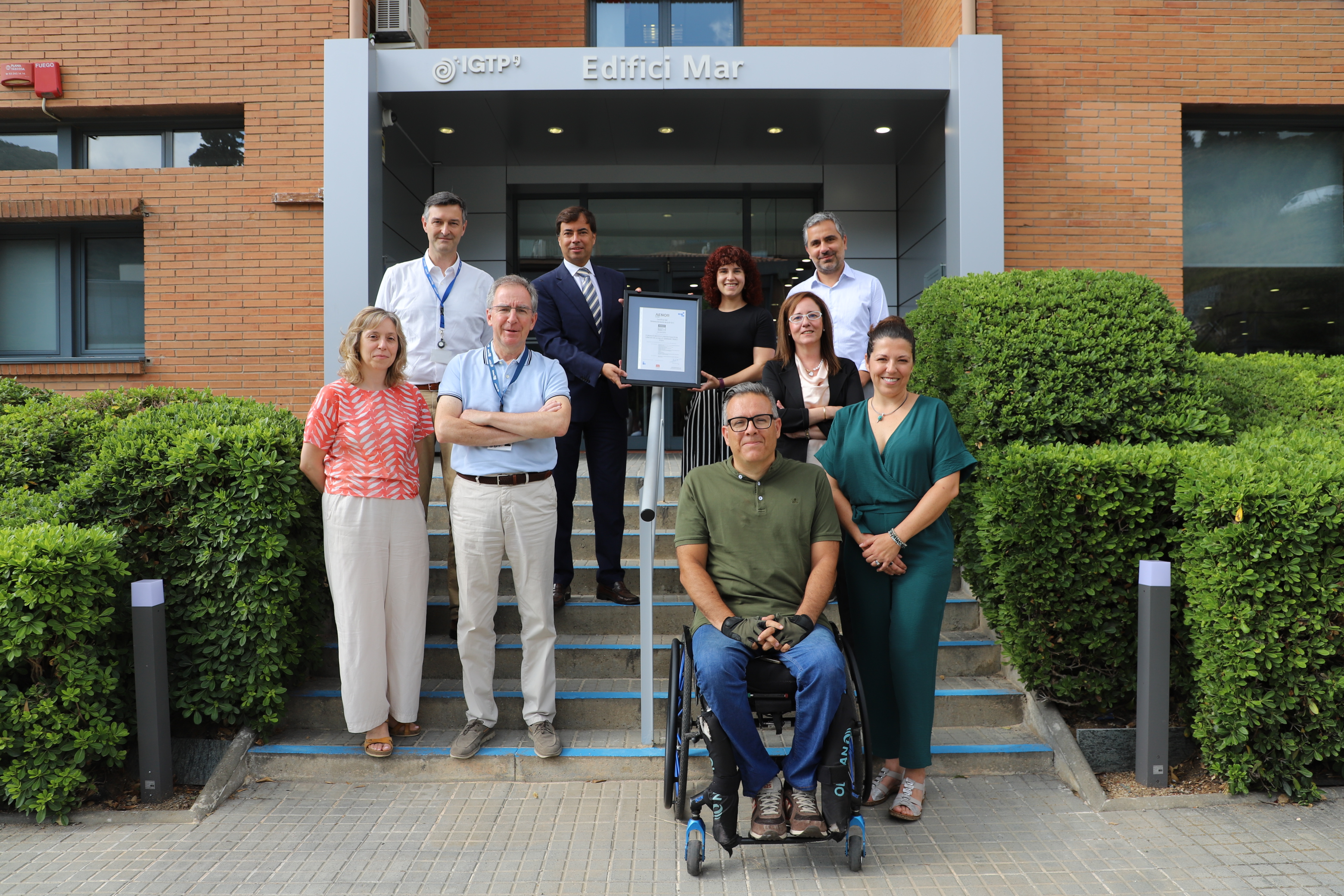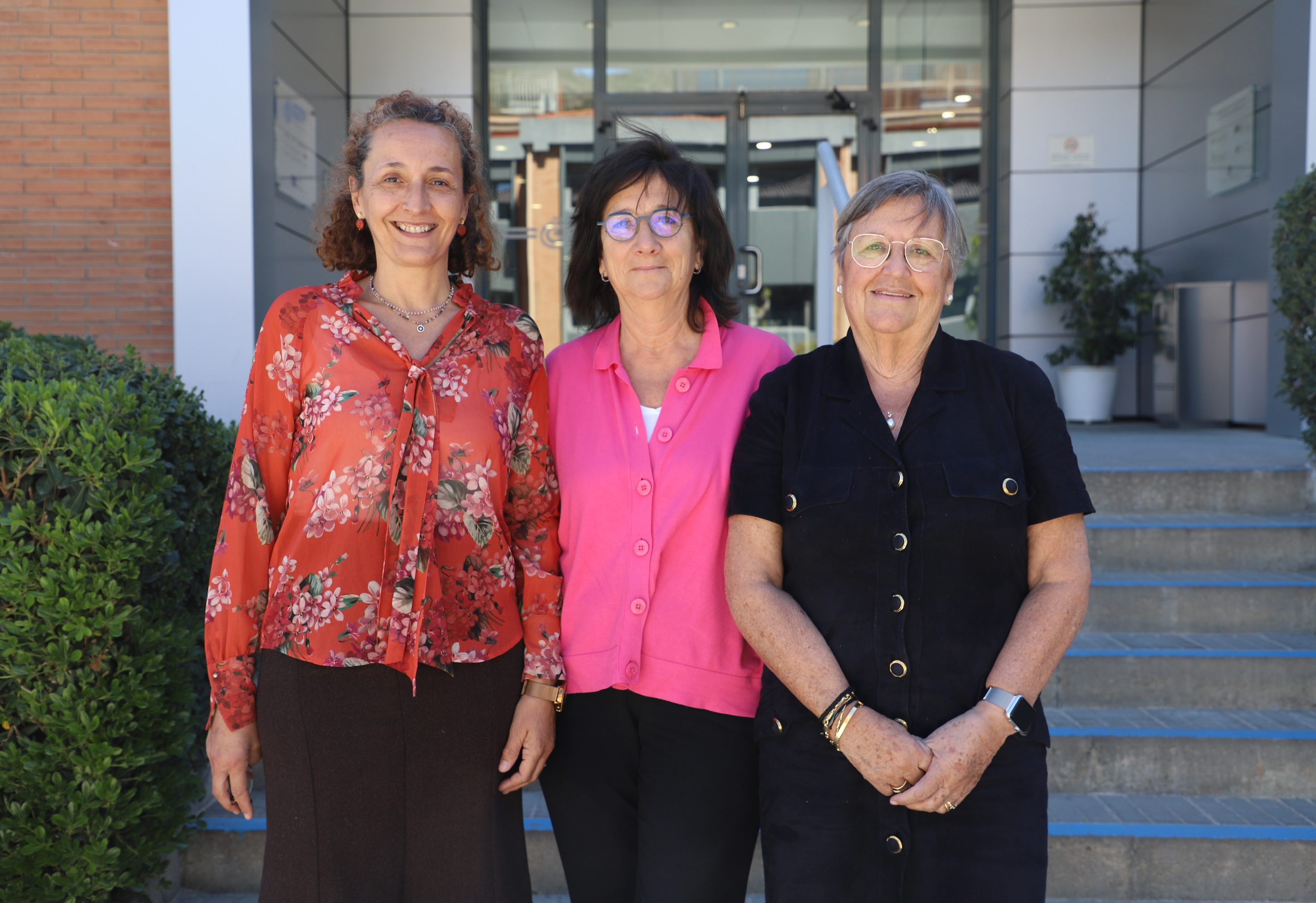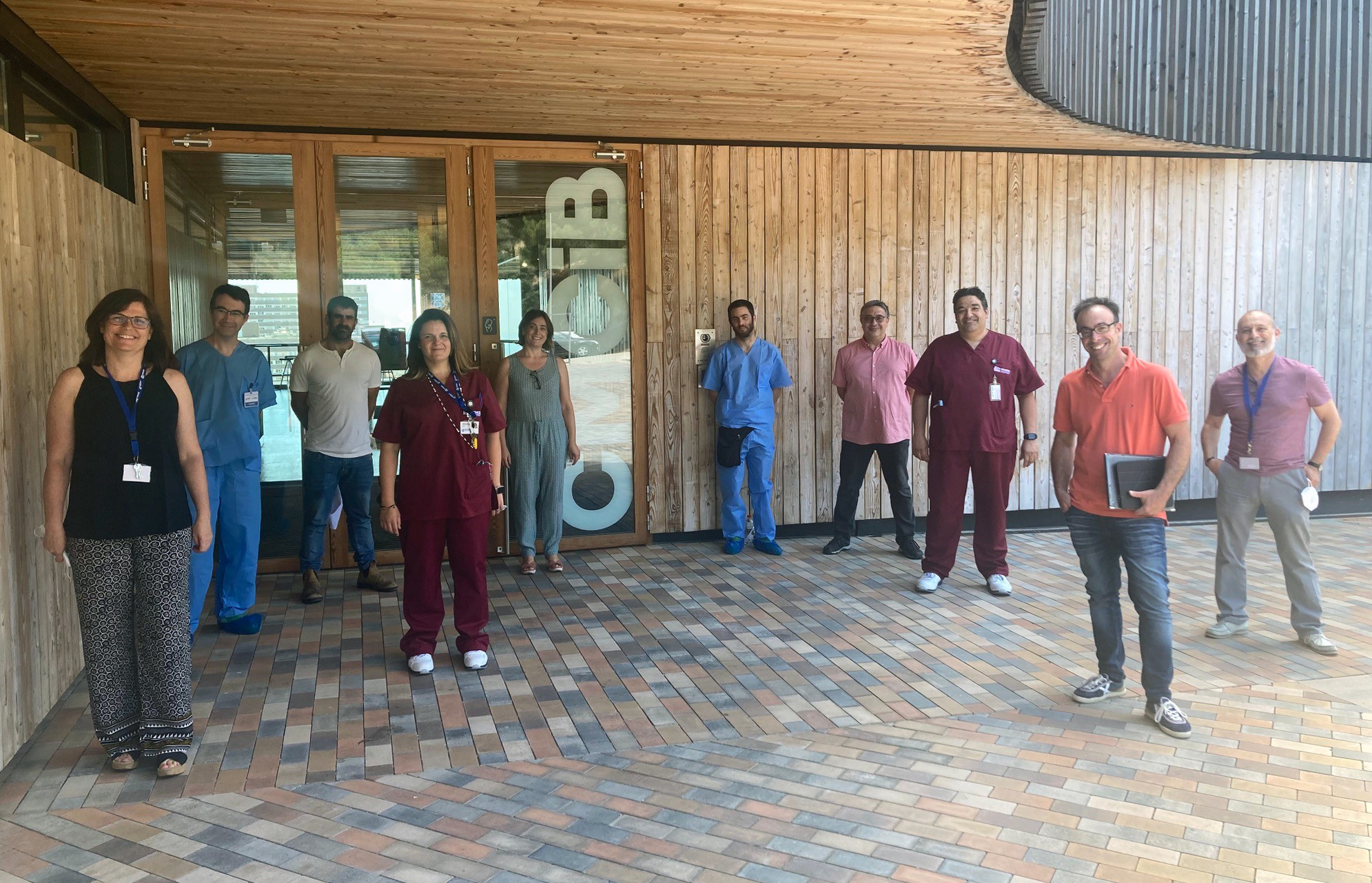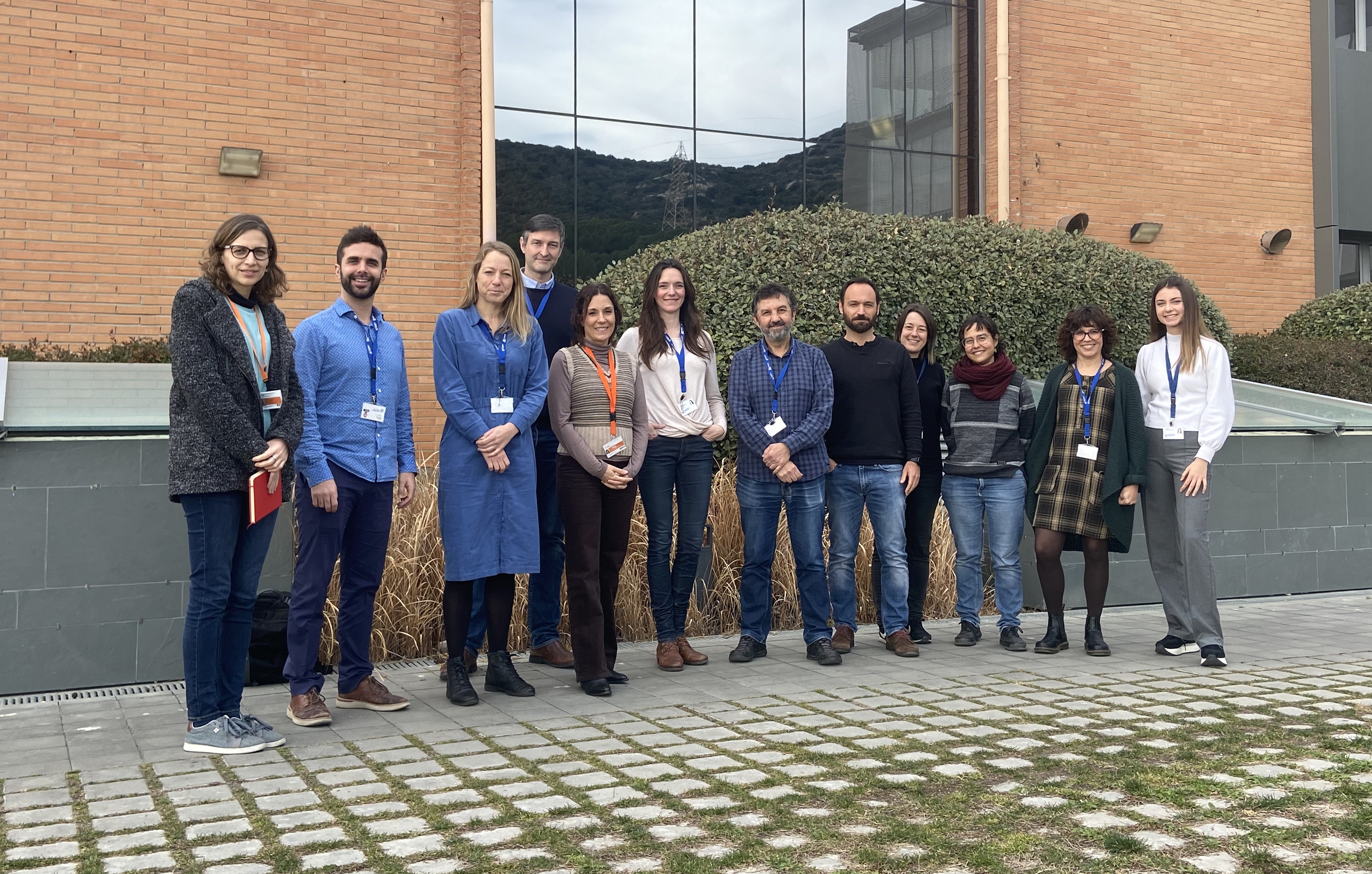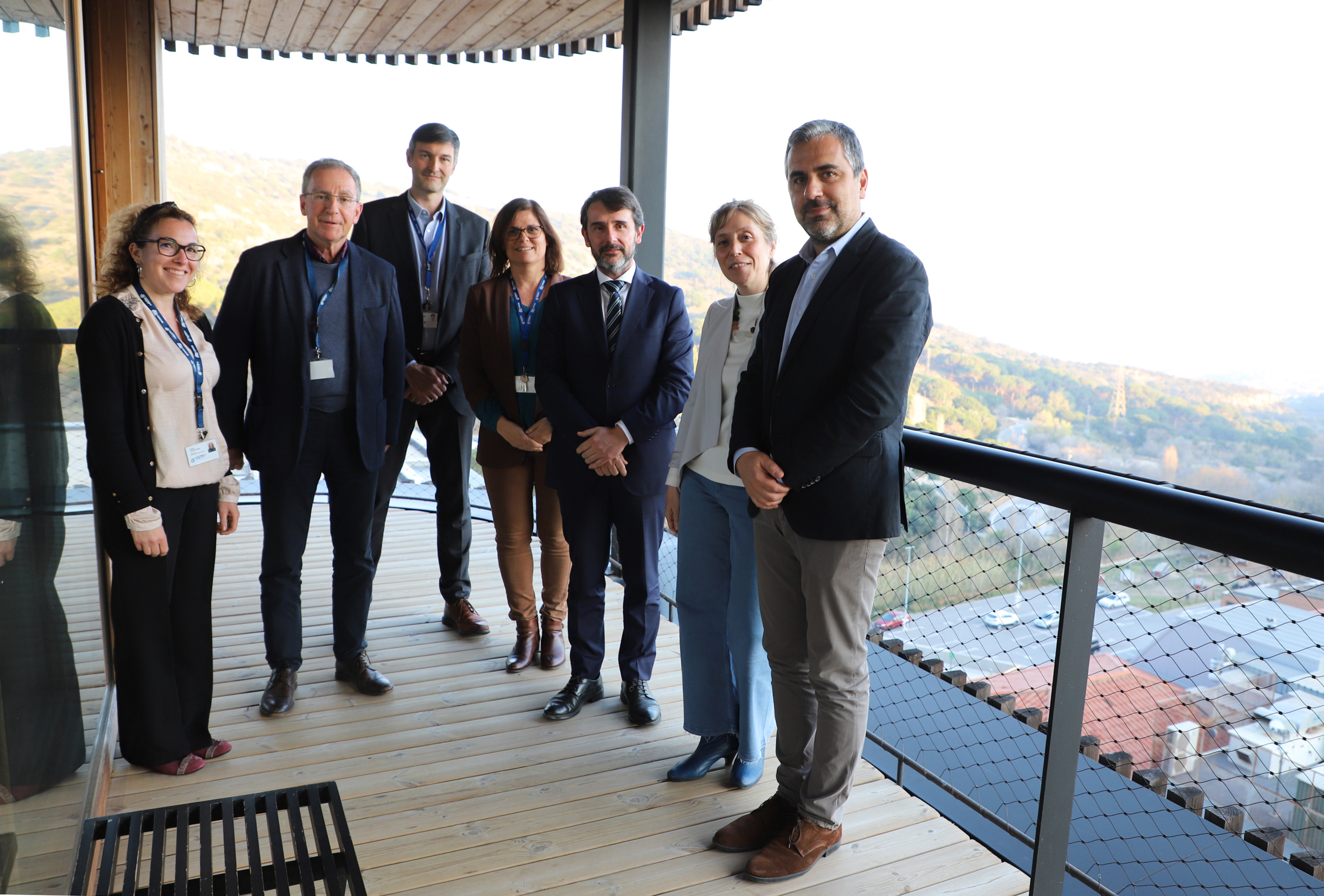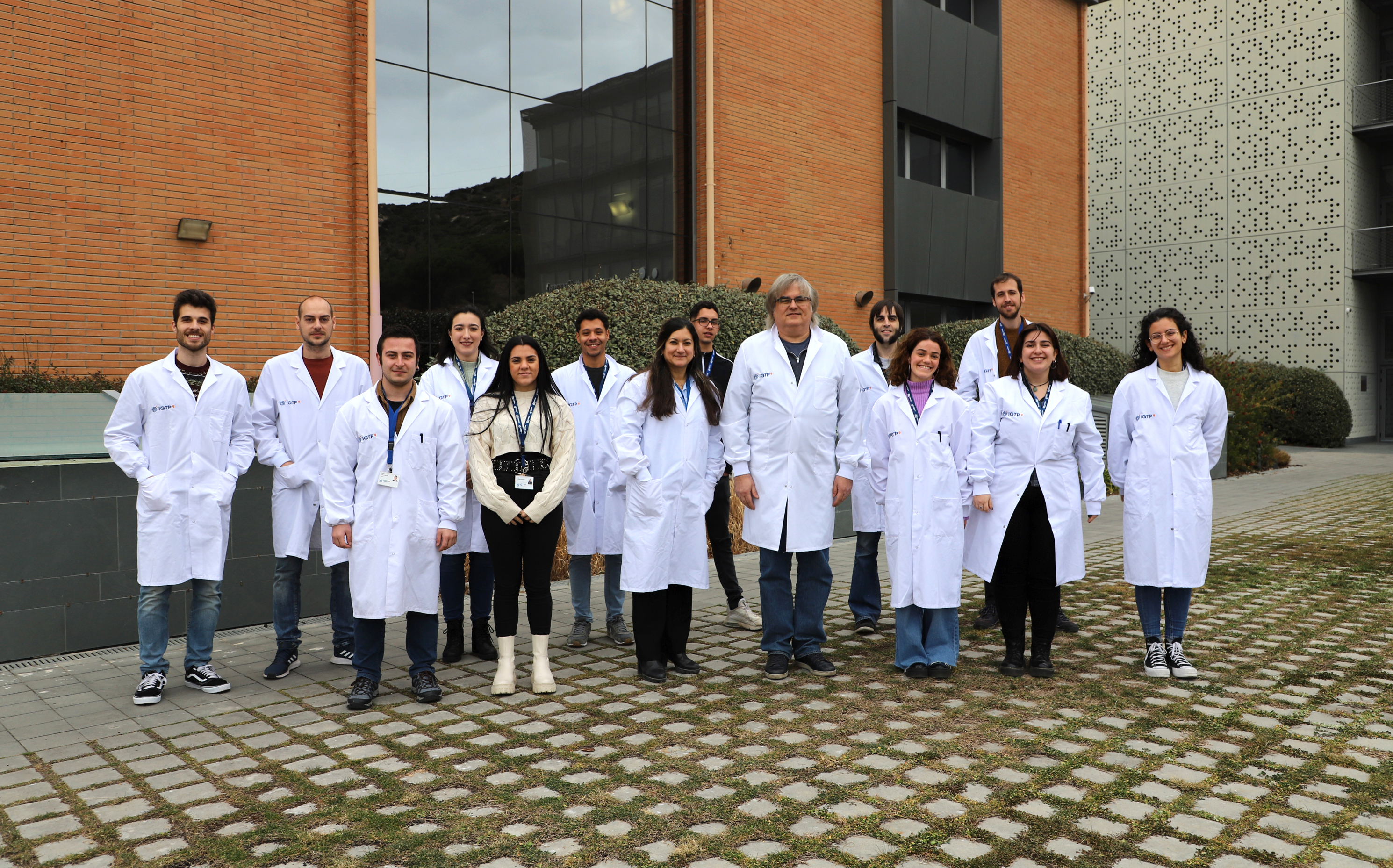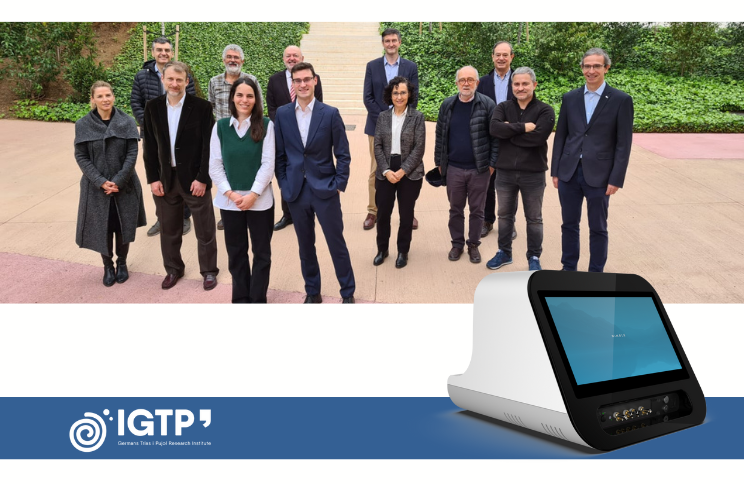IGTP's Innovation Unit receives AENOR's R&D&I Certification
The certification body AENOR has accredited the Germans Trias i Pujol Research Institute (IGTP) for successfully implementing a research, development, and innovation (R&D&I) management system in accordance with the UNE 166002:2021 Standard. This certification is a guarantee of good practices, and confirms that the implementated R&D&I management system meets the statutory requirements.
